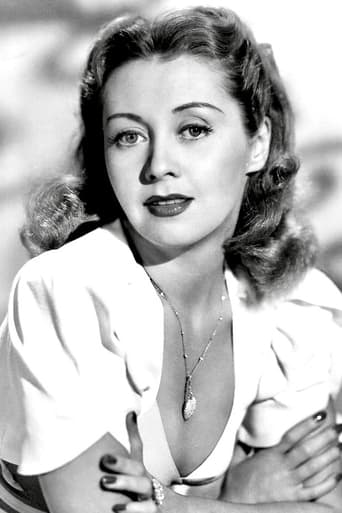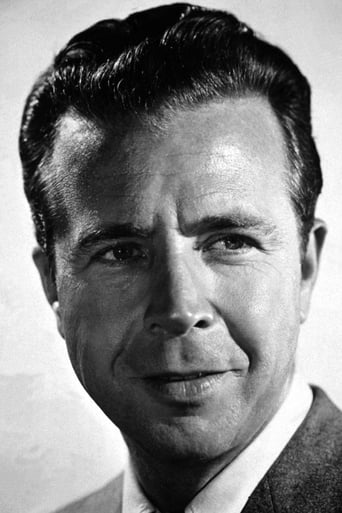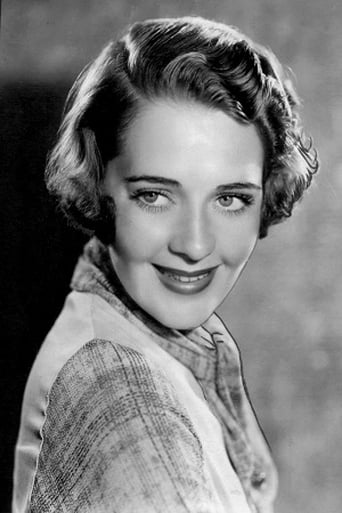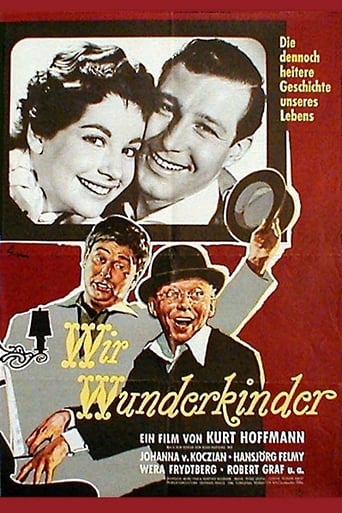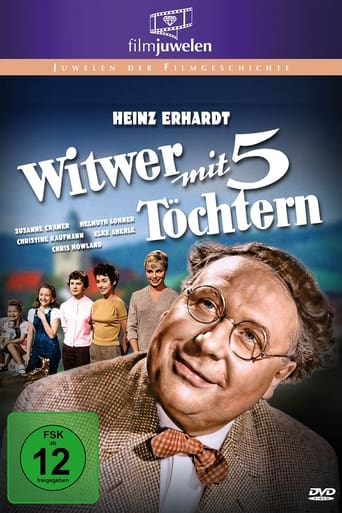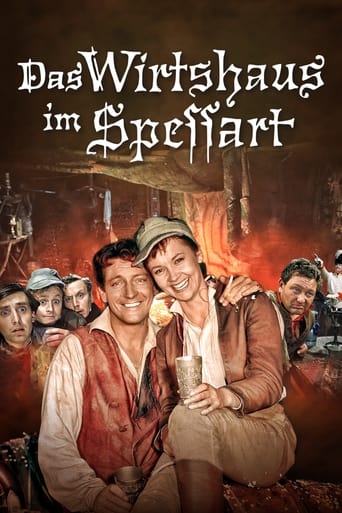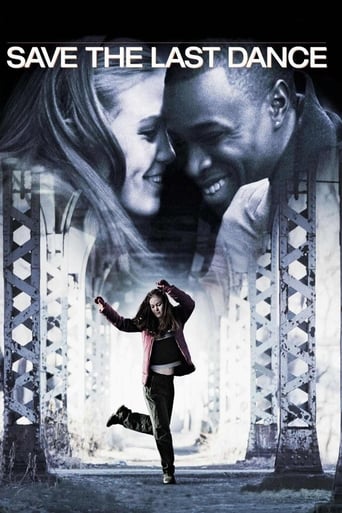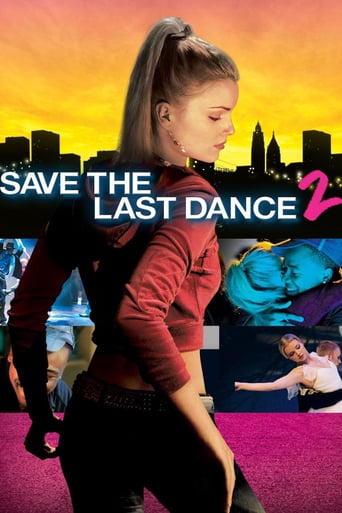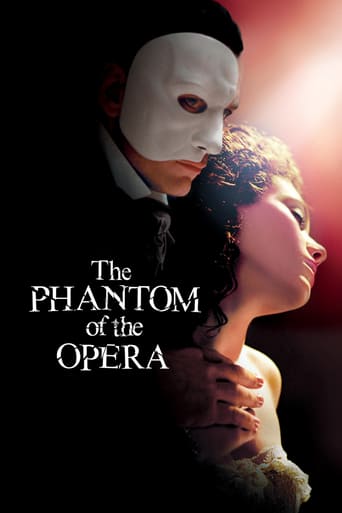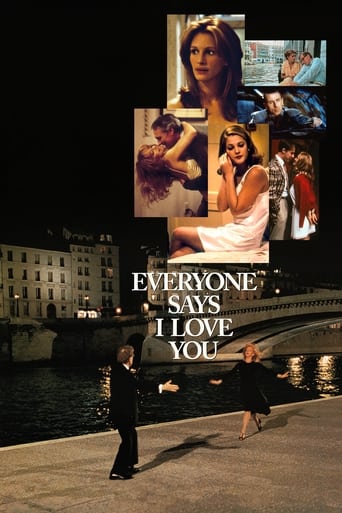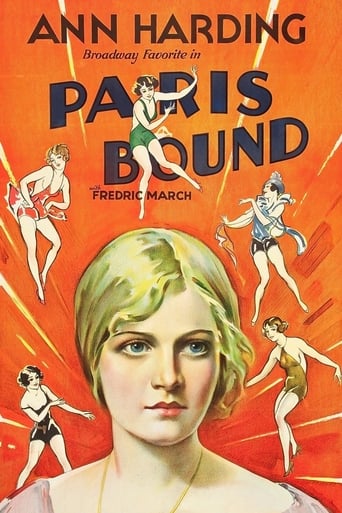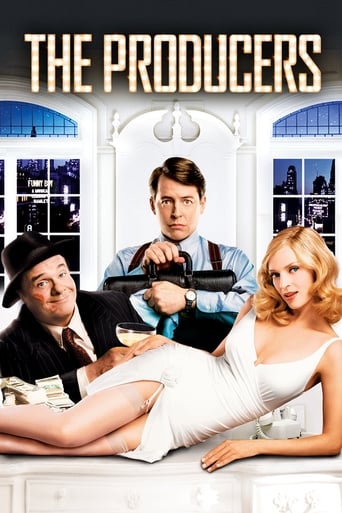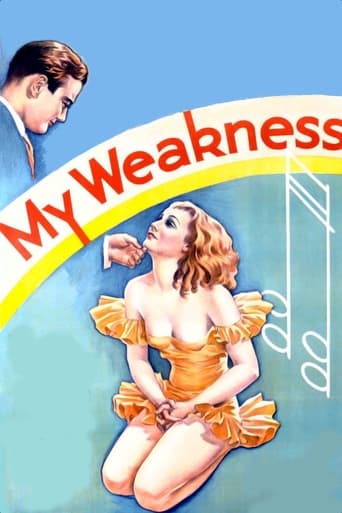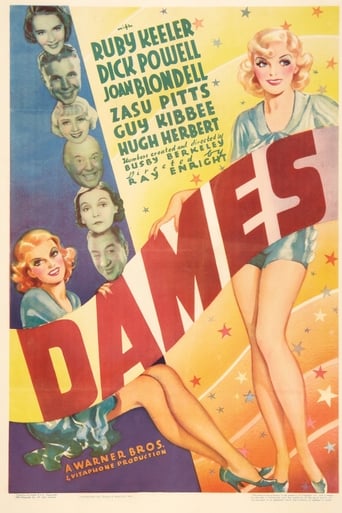
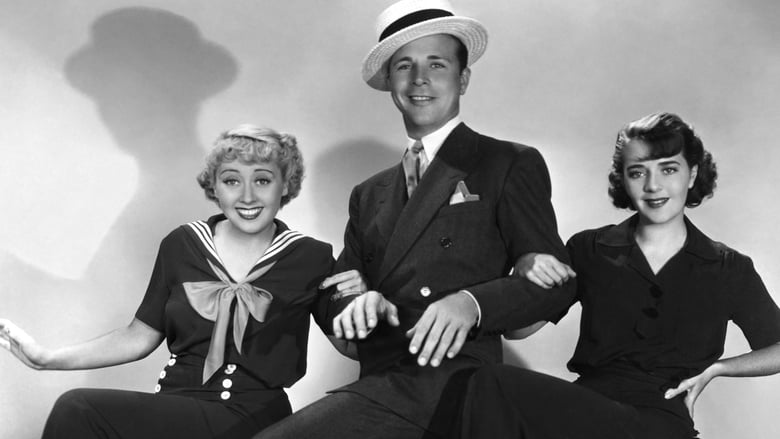
Dames (1934)
A reformer's daughter wins the lead role in a scandalous Broadway show.
Watch Trailer
Cast
Similar titles
Reviews
Don't Believe the Hype
Best movie ever!
A Masterpiece!
It's simply great fun, a winsome film and an occasionally over-the-top luxury fantasy that never flags.
Okay. I am 61 years old so this film is way way before me. However I am also a lifetime fan of movies and movie makers who never should be forgotten. Thirties musicals were never that fantastic with their stories, it was always an 'excuse' rather than a reason for dance routines. Boy met girl, boy lost girl, boy found girl again or boy/girl want to put a show on/or be in a show, they can't get in and by a twist of fate it all happens in the last 4 minutes! We know.... None of the Astaire/Rogers movies are remembered for their sparkling story and Dames is actually a little bit better than those. Whether you laugh (I did) at Hugh Herbert today is down to you. I find him hilarious and yes, the comedy is way over acted but so is today's (Will Ferrell anyone?)... I like the persona of Dick Powell, his voice and renditions of songs are not my cup of tea though again in the context of the film absolutely fine. Blondell is gorgeous as she was in those early Thirties films and Keller is well... Keeler....but the real star is the man you can't see. Yes you guessed it I am referring to Busby Berkeley. It does take a while before his magic gets on the screen but when it does it keeps on coming. The very end bit which goes from geometrically moving bodies to freeze frame to Dick Powell's head tearing it apart as if it were a wallpaper is so ahead of its times in terms of technical accomplishment I was dumbfounded. If you love cinema, you need to see a Busby Berkeley number (preferably in the film context) once in your life at least because THAT man changed the way images were made and we still see an impact of his amazing work today. Men like Berkeley are seldom mentioned now, people, if they remember anything, remember directors and a body of work. Though Berkeley did direct, he will always be the man who created those amazing routines at a time when CGI and computers were scifi. So yes, loving cinema as an art form needs a Berkeley vieweing and you could do a lot worse than watch Dames!
. . . you'll find the proof that this Warner Bros. flick created the Trump Presidency, under the Law of Quantum Physic's Rules for String Theory. "Ezra Ounce," Trump's cast iron template here, spends most of his time holed up--Howard Hughes style--on the top floor of "Ezra Ounce Tower," managing a multitude of businesses worth a cumulative $35 million (or about Three Trumps, adjusted for inflation). Early during DAMES Ounce launches a bogus public decency campaign to Make America Great Again. (Is any of this beginning to sound familiar?) Later (at 1:02:40), Trump's Chinese PJ top plays a crucial predictive role amid "The Girl at the Ironing Board" number, goosing Joan Blondell (as "Mabel Anderson," to which Mabel responds, "and when I'm off on Sundays, I miss all these Undies"). Since Today's America happens to be stuck in a Trumpster Alternate Universe created by DAMES, you may wonder what will happen next under the first-ever U.S. Game Show Host-in-Chief. Just fast forward through DAMES to 1:29:46, where you'll find a black-eyed Ounce\Trump in jail, saying "Phooey!" to his Alt.Right Tea Party Moral Minority Conservative "Christian" dupes.
Apparently, just barely getting under the wire, before the Hayes censorship code was fully enforced. Ironically, the plot involves a man of great influence(Uncle Ezra), who wants to totally ban stage musicals that feature dancing girls, who are the star attraction of this film, as a drag on morality. A fun screwball comedy screenplay is combined with the occasional song by cherry-cheeked tenor Dick Powell in the first hour, followed by 3 good Busby Berkeley-created production numbers, that dominate the last half hour. Thus, this film follows the typical formula for Berkeley-choreographed musicals of this era. More so than the competing Astaire-Ginger RKO films of this era, which typically dispersed dance numbers more evenly throughout the film, it was important to have an interesting screenplay to hold the audience's attention until the late big productions. Unfortunately, few of these films meet this criterion, by my reckoning. This one is an exception. Lacking the versatile talents of Astaire and Ginger, the central romantic pair, usually played by Dick Powell and Ruby Keeler, required a number of charismatic comedic supporting actors to help carry an interesting screen play. Such are present in this film in the persons of Joan Blondell and Guy Keebler, most importantly, along with Hugh Herbert as Uncle Ezra, Zasu Pitts, as Guy's upstanding wife, Johnny Arthur as Ezra's Fogg-like numbers minutia-obsessed private secretary, and Arthur Vinton, as Ezra's bizarre, sleepy, body guard.This was the 4th combination of Powell and Ruby in this film series. as the charming romantic couple, although top-billed Blondell easily blows away Ruby as the most impressive female personality. Ruby is given relatively little to do, mostly functioning as Powell's, bright-eyed, adorable, companion, and a vocal opponent of Ezra's narrow-minded views on Broadway plays. Unlike most of the Astaire & Ginger films, where they begin unknown to each other, or as ex-lovers, separated for a few years, and where Ginger goes through several cycles of hating and liking Astaire, here Powell and Ruby begin as lovers, and mostly remain that way, save for an interlude, when Blondell finds it advantageous to start a temporary romance with Powell. Thus, in contrast to most musicals, where the drama and comedy mostly relates to the central romance(s), in this film, such are mostly centered around the question of whether the Hemingways(Guy, Zasu, & daughter Ruby) can maintain the perception by wealthy confirmed bachelor Uncle Ezra that they are the most morally upstanding of his relatives, thus deserving his gift of $10 million, as his heir apparents. A related question is whether Powell, as the would- be producer of a Broadway show, can weasel $25,000 out of either Ezra or Guy. After failing with Ezra(of course), Powell teams with Blondell to blackmail Guy. Guy then discovers the additional embarrassment that daughter Ruby is player in Powell's show, which Ezra plans to attend, and let loose his goons to break up the show, at his signal. In balcony seats, Ezra, Guy, and Zasu get drunk on the 95% alcohol patent medicine Ezra insists upon for the persistent hiccups. Ezra finds he actually enjoys the frolicking girls, but eventually accidentally gives his signal for his goons to breakup the show, causing a general panic. All land in jail, except Powell and Ruby, in a huge cell, Ezra enjoying direct contact with some of the girls, especially Blondell.As usual, in this film series, Harry Warren and Al Dubin composed most of the music. Clearly, their standard "I Only Have Eyes for You" is the only take home song, and is featured several times, either as a Powell song to Ruby, or in one of the big production numbers. They also composed "Dames", and "The Girl at the Ironing Board": the latter featured in the first of the 3 big productions. Blondell is the featured singer-actor, abetted with several other 'dames', singing about their fantasy lover, while doing their job as laundresses. Includes some puppet-like action by the hanging laundry, whose strings can occasionally be seen. Quite a fun production! This is soon followed by the 'I Only Have Eyes for You" production, featuring multiple images of Ruby, in various scenes, as the only girl Powell has eyes for. Powell then sings "Dames", followed by the last big production, featuring many close ups of 'dame's ' faces, along with various activities, finishing with a series of geometric patterns or other special effects.After his salad days at Warner, Berkeley would mostly choreograph and occasionally direct for MGM, including most of the Mickey & Judy films, Esther William's "Million Dollar Mermaid" hit, several of the Jane Powell musical comedies in the '50s, and lastly "Billy Rose's Dumbo",in 1962. But perhaps his most '30s-like work is seen in the Fox Technicolor "The Gang's all Here", with Carmen Miranda.
This film defines "factory film-making" -- total paint by the numbers approach to musical film, with contempt for the intelligence of its audience. Let's wrack up the film's most obvious faults -- only one memorable song ("I Only Have Eyes for You") which unfortunately is played twice for a total of about 15 minutes so that you want to tear your hair out. Only one decent (I mean half-way decent) singer in Dick Powell. A poor script that doesn't allow the funny supporting players like Guy Kibbe to rise to the occasion.Everything about this movie was seemingly pulled together in great haste, so that various elements of the story that might have been fun just feel obligatory. Why does Ruby Keeler get angry at Dick Powell (I won't even bother to use the names of their characters.... Powell is "Jimmy", of course), and then decide to do the show anyway? Don't look to the film for any answers. It just seems to happen because that's what the audience expects to see in these films. I guess the formula was so set by this point that they felt they could use shorthand to express even what are supposedly the primary emotional moments in the story."Eyes for You" shows up so early, and so intimate, that it was easy for me to predict it would be used later for the extravaganza. In fact basically the structure of this movie is the first 2/3rds are a half-baked situational comedy about Guy Kibbe trying to inherit $10 million, and then the last 1/3rd is just a series of increasingly mind numbing musical sequences that have no relationship to the story or characters or to any idea. Geometrical shapes are used in stunning arrangements by Busby Berkeley -- my problem is that there is never any concept behind it. It's kind of neat to look at, but totally pointless. And the "Eyes" sequence with hundreds of images of Ruby Keeler is actually disturbing. I don't know how big of a fan you'd have to be of Ruby Keeler to watch that without feeling an urge to vomit or to run screaming out of the theater. Disembodied Ruby Keeler heads seem to lunge and lurch all about and then form their own geometric shapes, and at the end as it's supposed to be Powell's dream we should worry about his mental state. But of course, as usual there's also no attempt to show anything that could actually happen on a stage, despite the fact that the entire running length of the film prior to these sequences has been about Powell putting on a Broadway show everything we see is camera tricks that could never work on stage.In the film's most embarrassing skit, Powell's character plays some kind of showbiz bigwig who refuses to see George White and George Gershwin but readily allows a group of "dames" to enter his office and practically attack him. "Who knows the names of those composers?" he tells us, "Admit it, you pay to see the dames." This kind of cynical joke reveals everything about the mindset of the producers of this film, and explains why it's such a piece of garbage now compared to the better musicals of the 30s and 40s. First of all, the people behind this film would have been better off to hire somebody like Gershwin who could have provided some memorable music. Instead it's full of pointless sequences with hundreds of plump girls going through boring military routines in geometric shapes. Geez Mr. Powell, I sure do like that better than those lame musicals that actually have, you know, good music and decent stories.Lame, insulting to the intelligence, insulting to the taste, it's no wonder the steam ran out of these types of musical shows long before the big war broke up the party for good.
